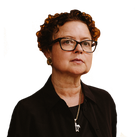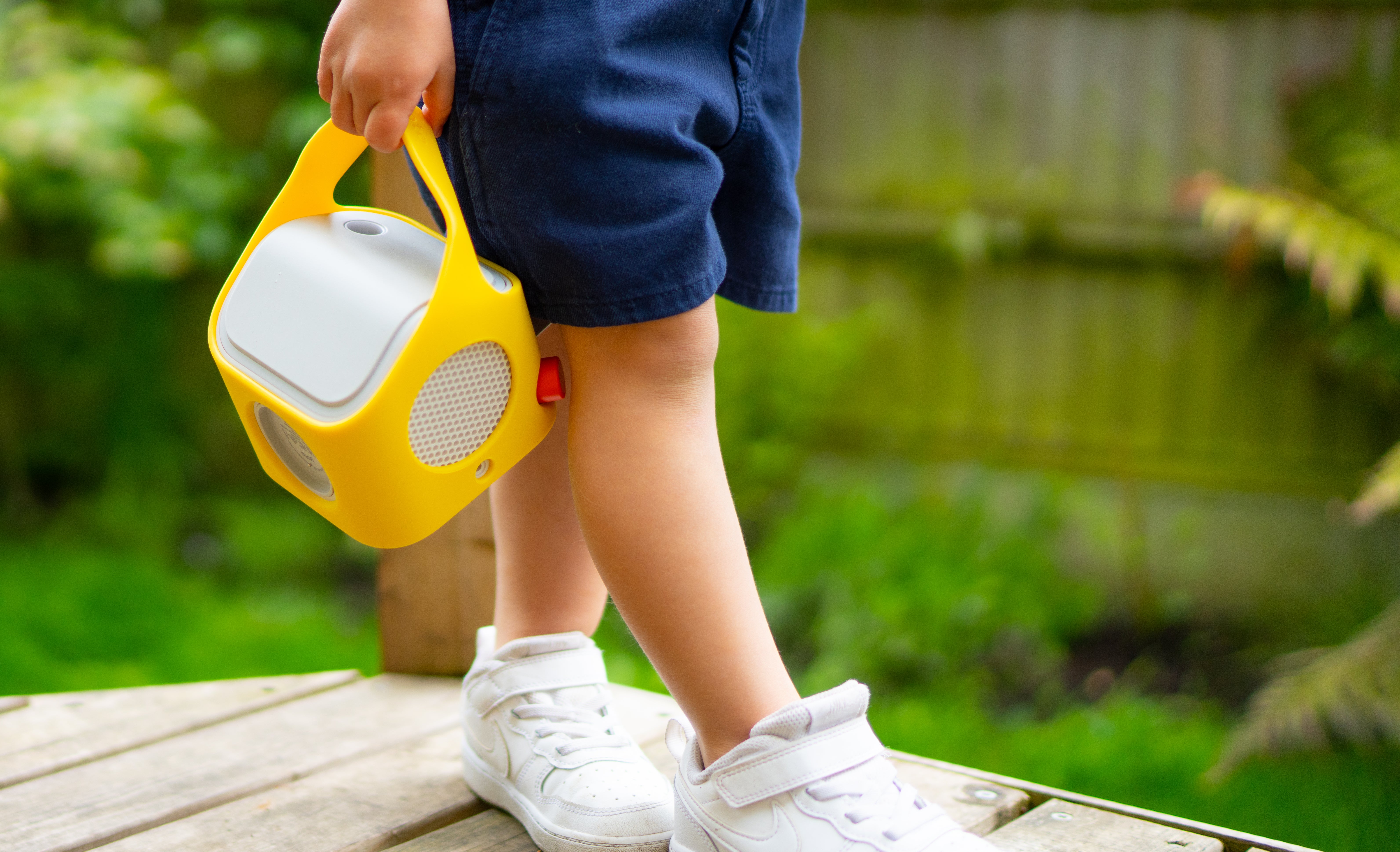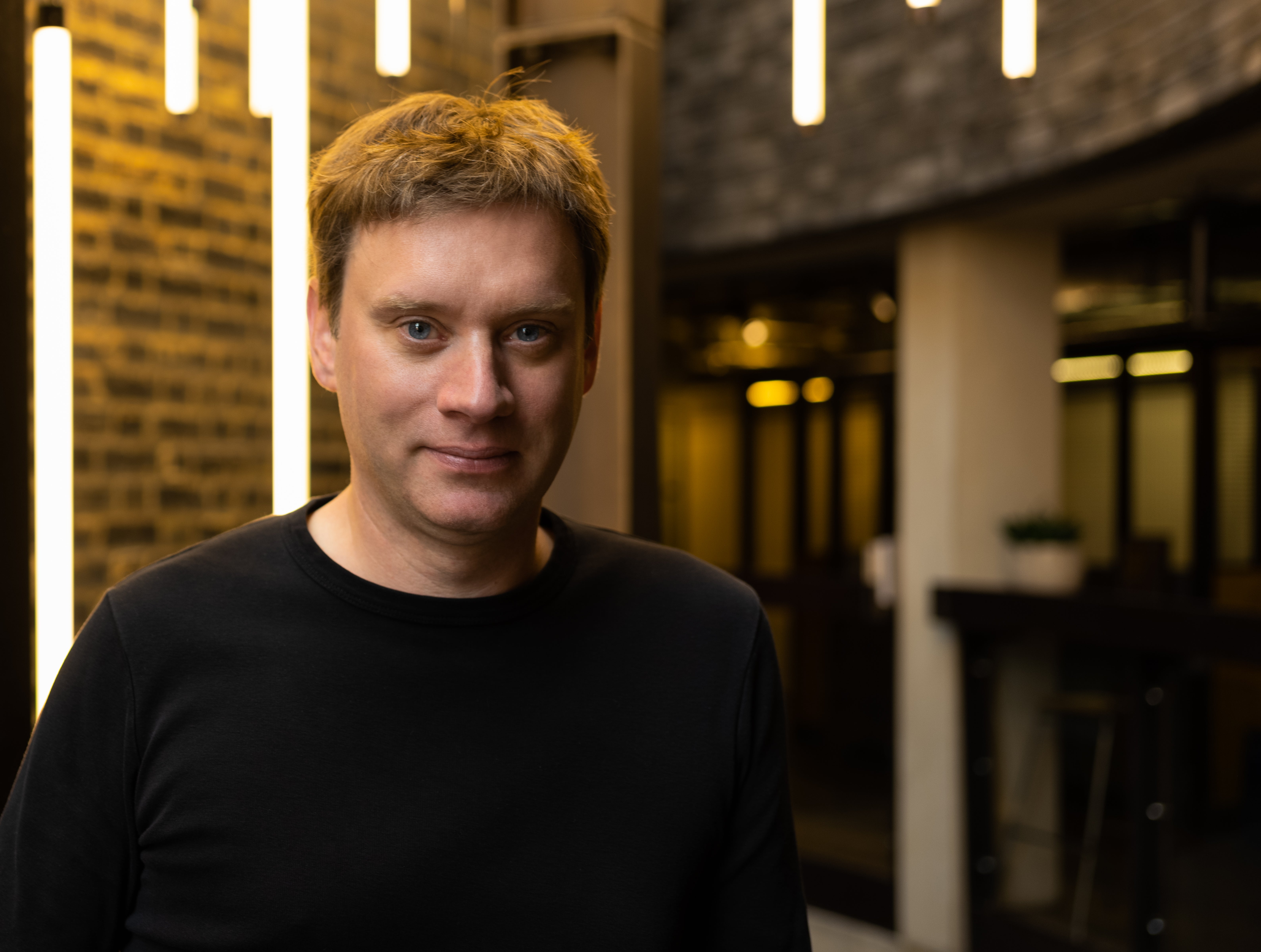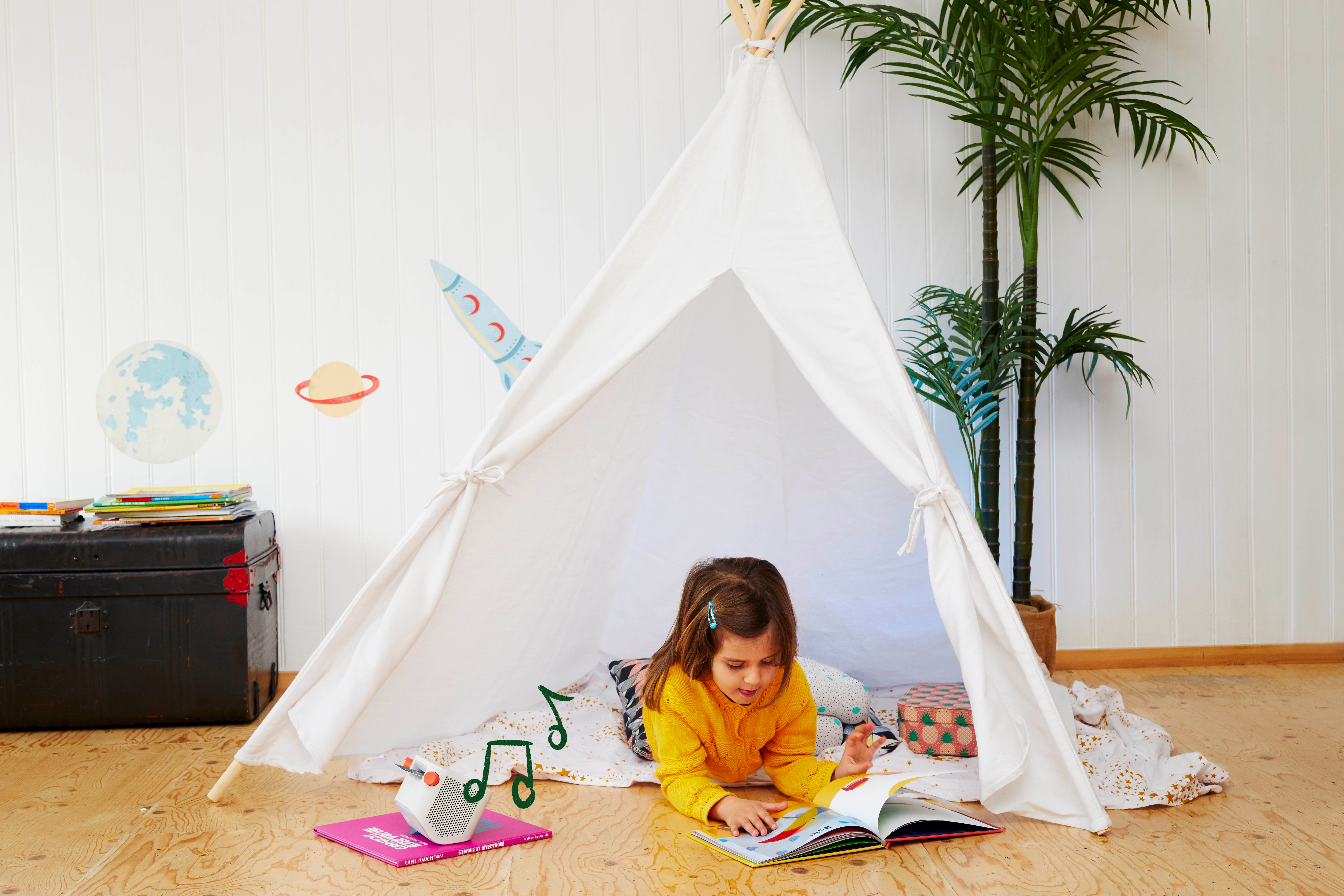Yoto: The portable speaker and platform for kids
Ben Drury tells Heather Martin about building a digital audio platform for kids that parents can trust


Eight years ago Ben Drury saw his first playground. It wasn’t that he’d had a deprived childhood. He hadn’t just moved house. It was simply that his eyes had been opened – by becoming a dad. “I remember that very visceral memory of walking around my neighbourhood and suddenly seeing things that had always been there, but I hadn’t noticed them before – like parks and schools and nurseries, and health and safety issues of how to cross the road. The moment you have a child, you start thinking about those things.” And he also started thinking about Yoto, the critically acclaimed and award-winning portable speaker and associated platform for young children, which launched in 2017.
Drury is a serial entrepreneur. He met his co-founder and (future) fellow young father Filip Denker at his previous start-up, 7digital, which licensed content from record labels, music publishers and collecting societies for the likes of Samsung, Blackberry and Spotify. He reckons that audiobook licensing is a piece of cake by comparison. “We were both passionate about digital audio, and the inspiration for Yoto was us wanting to give our new family members access to that content, but in a way that they were totally in control of, and that didn’t involve a screen-based experience. We’re the antithesis of Mark Zuckerberg with his metaverse.”
Drury did Physics at university but remembers being moved by Charlotte’s Web at primary school and “geeking out” on The Lord of the Rings at secondary. As a child, he and his two brothers had only restricted access to television. But he taught himself to code on an old Acorn Electron and learned the piano, and was into Nirvana and The Stone Roses, playing guitar with a band.
He sent his own children to a Montessori nursery, attracted by its emphasis on independent learning. And the message on the front page of yotoplay.com is clear: “Kids in control ... No camera. No microphone. No Ads.” The smart speaker is a full computer with Bluetooth and wifi, “but we wanted to hide all that away and just use it to deliver an amazing audio experience for children”. Audio is “that unique medium where you can do something else at the same time”, whether eating, playacting, doing a jigsaw, or using building bricks to make castles in the air.
The Yoto Player is a robust, irregular cube, with a couple of big red buttons poking out like ears at each corner, and a mouth-like slot between them where children can insert the (equally robust) card of their choice. The library is stocked with classics by Roald Dahl and Julia Donaldson, for example, as well as traditional fairytales and nursery rhymes. There is a bespoke phonics system, and a range that complements the Lego Duplo number train, alphabet truck and animal packs. It has a 16x16 pixel display to illustrate stories and provide occasional prompts. Its blocky 1980s videogame styling has a retro appeal that harks back to the days of tapes and Walkmans.

Rather than parking your kid in front of a screen, the idea is to use cutting-edge technology to preserve and foster traditional creative play. “The test for us was: do children sit there and stare at it? And the answer is absolutely not, because there’s no YouTube, no animations, it’s just really low-fi graphics that have real purpose,” says Drury.
Researchers have tested creativity and imagination in response to audio and video stimuli. Two sets of children were presented with the same story, with one set listening, and the other both listening and watching. Halfway through, both sets were asked to complete the story with pen and paper. “The audio group were far more experimental,” says Drury. “They took the plot line in different directions and used incredible visuals, whereas the video group just tried to reproduce what they’d seen.”
And he observed the same effect in his own children. “When they’re listening, their brain is working so much harder than when they’re watching television, because they’re having to create the visuals to go along with the story in their mind.”

Yoto helped their language development too. As chance would have it, Drury and Denker both married Spanish women and are bringing up bilingual children, or in the case of Denker, who’s from Slovakia, trilingual. When Drury’s two boys started dropping Enid Blyton turns of phrase into everyday conversation, “we could tell they were learning by osmosis”. Yoto provides access to rich language from the different ages of children’s literature, and across cultures too. The potential for primary school language teachers is obvious: the company already has considerable French content, including Yoto Radio France, with demand for Spanish growing from the bilingual Americas.
Yoto encourages users to be producers with “make your own” cards, to which you can upload your own audio via the app. “That was huge last year during lockdown,” Drury says. “We had grandparents recording stories or messages for their grandchildren on WhatsApp and sending them to parents to put on a card.” Not only was this a source of comfort, it’s also a means of mitigating against the device becoming an impersonal virtual babysitter. Research around the “word gap” has shown that lack of exposure to a minimum number of words in the pre-school years can lead to worse outcomes in life, but also that it matters that the majority of those words should consist of meaningful interaction with family members.
Friday jokes
“Knock knock.” “Who’s there?” “Tank.” “Tank who?” “You’re welcome.”
“What do you call a cow when it’s eating grass?” “A lawn mooer.”
“What do you call Harry Potter when he doesn’t get a hair cut?” “Hairy Potter.”
When the speaker isn’t playing it turns into a clock: a sun clock by day, and a moon clock by night, which has proved “really helpful with sleep training”. Many use it for calming music, but it’s not intended to replace the bedtime story with parents, which is “one of the most important, sacred moments”.
Yoto isn’t all about stories. Yoto Daily is run by an in-house podcaster and includes Friday jokes, where children send in their own gloriously funny unfunny contributions, and a weekly drawing activity where, channelling Tony Hart, he describes a theme like space, for example, and invites listeners to draw along with him, then upload their pictures to a virtual gallery. Each podcast ends with birthday shout-outs from around the globe. “My kids love that,” says Drury. “‘Where’s Boulder, Colorado?’ they ask.” Which in turn prompted a regular geographical feature, with countries nominated by children themselves, often in line with family heritage, like when Drury’s nephews wanted to learn about Nigeria, where their mother comes from.
With the support of author Sophie Dahl they’ve recently launched Inspired Tales, a traditional story-writing competition split into two age groups, with the creative process facilitated by a lucid practical guide. “It’s the kind of the thing Jackanory used to do,” says Drury, with a hint of nostalgia.
The name Yoto was a purely pragmatic, if inspired, choice. Having settled on a two-syllable word as the optimal length for a two-year-old, they first came up with “Oto”, but quickly ran into trademark and domain name problems. So they worked their way through the alphabet looking for the best letter to put in front of it, until they finally arrived at “y”, which sounded vaguely Japanese, and possibly meant something good. So far as they could tell, it didn’t mean anything rude in any language they were aware of. The long “oh” was perfect too – it’s one of the first sounds most children learn to pronounce. As Drury himself recalls: “‘No’ was my youngest son’s first word.”
Join our commenting forum
Join thought-provoking conversations, follow other Independent readers and see their replies
Comments



Bookmark popover
Removed from bookmarks